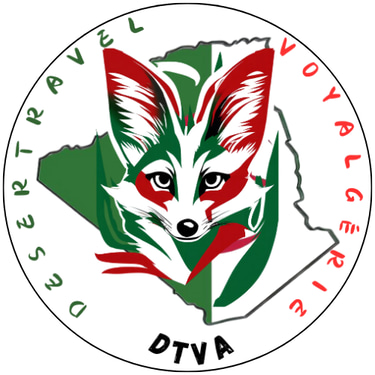The Tuareg festival of the Sebiba in Djanet
The Sebiba, a thousand-year-old Tuareg festival, listed as a UNESCO World Heritage Site
06 Day Tour
The Sebiba festival takes place on the day of the Ashoura celebration. Ashoura, like the holy month of Ramadhan, follows the lunar cycle, and thus moves back ten days or so each year.
What is Ashoura?
Ashura, is a religious event in Islam, which takes place on the 10ᵉ day of Muharram, the first month of the year in the Muslim calendar. It is a very important commemoration for both Shiites and Sunnis (The two major branches of Islam after the death of Prophet Mohamed (sws)).
The Sebiba festival in Djanet, for example, brings together dancers from the El Mihân and Zelouaz districts in a competition between the greatest number and the most beautiful costumes. Its origins date back to an ancient war between two tribes in the Tassili N'Ajjer, appeased by the announcement of Moses' victory over Pharaoh. Today, this legendary festival perpetuates this pact of peace.
Now a festival, the two nights leading up to the festival are not to be outdone: open-air concerts, preparation and training for both quarters, except on the eve of D-Day!
The SEBIBA is a Tuareg cultural festival, unique in the world and a UNESCO World Heritage Site since 2014.
SEBIBA program:
Day 1:
Arrival at Djanet airport, welcome at Djanet airport by our Tuareg guide and the agency's Tuareg team, transfer to the agency's residence for overnight stay.
Days 2 and 3:
Discovery tour in 4x4 with short walks in the magnificent landscapes of the Sahara, the Tassili N'Ajjer with its contrasts of rock and sand, its endless dunes in the Erg Admer, not forgetting the Essendilène oasis with its laurel-lined canyon, and the famous rock engraving (around 5000 BC) of "the crying cow". Evening bivouacs.
Day 4:
Back to Djanet, for a full day's visit of Djanet: its gardens, its market, its old quarters, shower at the Moorish baths, and settling into a magnificent bivouac near Djanet to attend the Sebiba Festival, dinner and wake.
Day 5:
A day devoted to discovering the Sebiba, from 08 to 13 h and then from 15 to 18 h. Encounters and emotions guaranteed! In the evening, dinner and overnight at the camp in Djanet.
Day 6:
Transfer to Djanet airport for return flight to Europe via Algiers.
Note: The itinerary may be subject to change depending on flight schedules and festival dates.
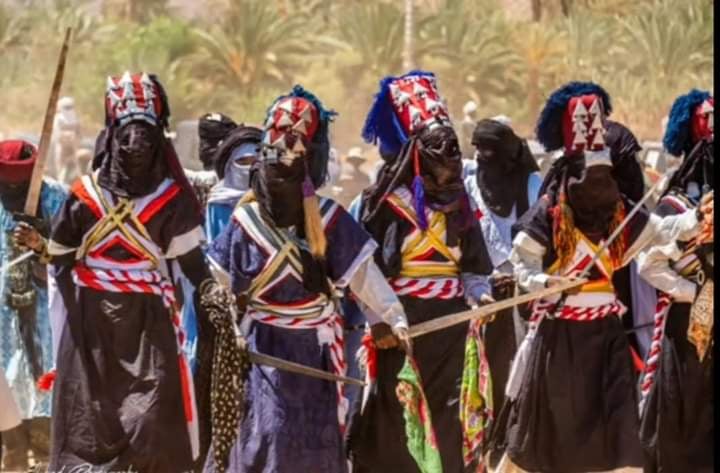

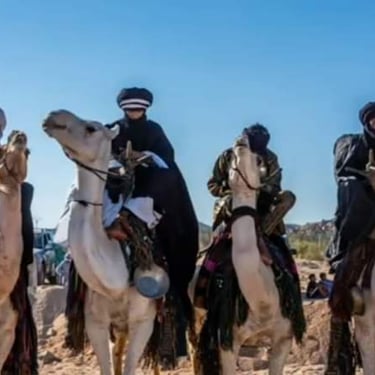
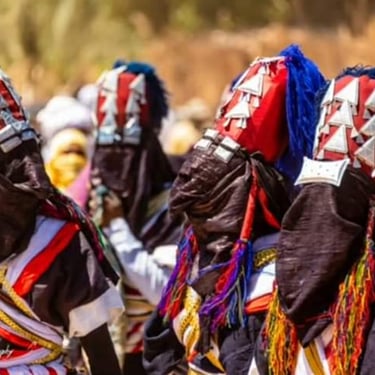
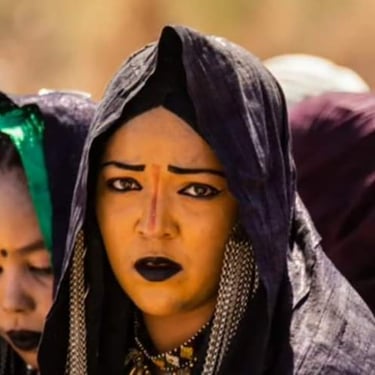

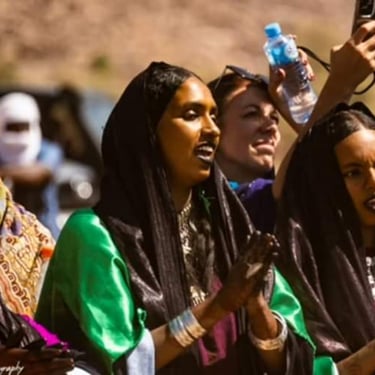
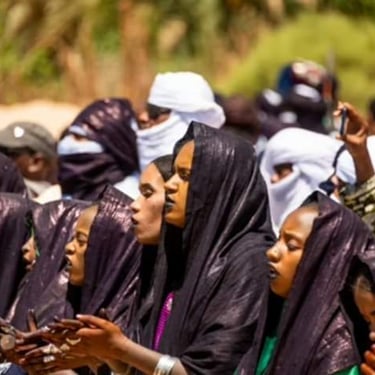
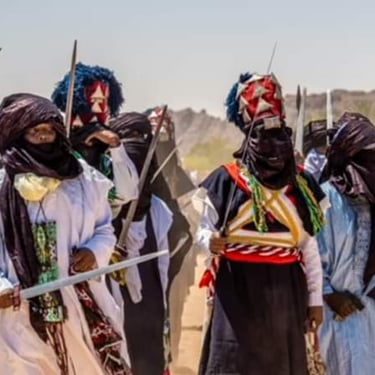
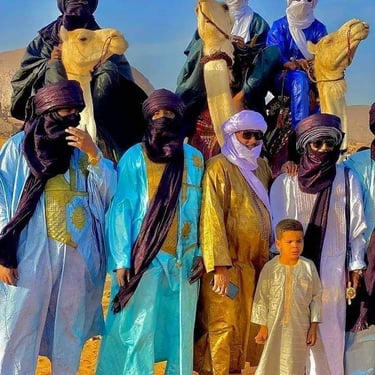
Contact
France :+33 649 582 326
© 2024. All rights reserved.
Produced by Codev
Algeria : +213 664 116 455
email : support@desertravel-voyalgerie.com
